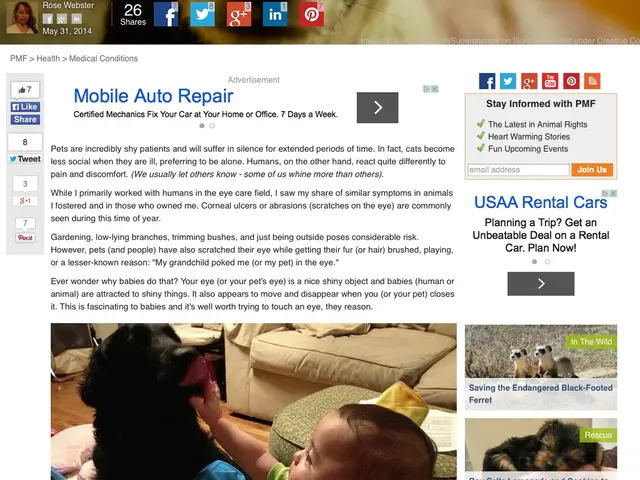Redefining Shortcomings: The Brain Science of Unforeseen Outcomes and Unwavering Development
In a world where the fear of failure often looms large, a new perspective is emerging—one that views failure not as a final verdict, but as valuable feedback. Neuroscience suggests that this shift in mindset can have profound effects on both neurobiology and resilience.
When we perceive failure as feedback, our brains respond differently. New neural pathways can be formed, allowing individuals to grow out of the fear of failure through reinterpretation. This process, which involves the creation of new connections in the brain, associates failure with learning and growth rather than fear[3].
Cognitive reappraisal, a technique that involves reinterpreting negative emotions or experiences, can significantly reduce negative affect when combined with visual feedback. This method helps individuals to reframe their emotional responses to challenging situations, which can affect how the brain processes and manages stress[4].
The benefits of reframing failure extend beyond neurobiology. Enhanced psychological resilience is one such benefit. By fostering a growth mindset, individuals can view challenges as opportunities for learning and development rather than threats to ego[3]. This mindset can help individuals bounce back from setbacks more effectively.
Reframing failure can also impact our self-concept and identity. Identity-reframing interventions can help individuals strengthen their sense of self and belonging. By focusing on strengths and past experiences, individuals can mitigate the negative impact of socioeconomic status on academic self-concept and reduce fear of errors, thereby promoting resilience[2].
Moreover, cognitive distortions, such as catastrophizing or jumping to conclusions, can erode resilience. By reframing these distortions, individuals can develop more balanced and adaptive emotional responses, leading to improved decision-making and reduced anxiety[1][5].
The power to change our brain's response to failure lies in our hands. The moment we label something as "failure," it activates the limbic system, especially the amygggdala, registering it as danger. However, with attention, intention, and language, we can change the way our brain perceives and responds to unintended results.
Neuroplasticity, the brain's ability to constantly reorganize itself in response to experiences, intentions, and inner dialogue, is the key to this transformation. By reframing failure as feedback, we can activate agency, override old fear loops, and get curious instead of critical. This shift in perspective can lead to a more resilient, growth-oriented mindset, transforming our relationship with failure and fostering personal growth.
Science reveals that our brains can adapt when we reframe failure as feedback, fostering personal growth and mental health. By employing techniques such as cognitive reappraisal and identity-reframing interventions, one can develop a resilient mindset, strengthen their sense of self, and reduce anxiety associated with personal development, health-and-wellness, and education-and-self development.




